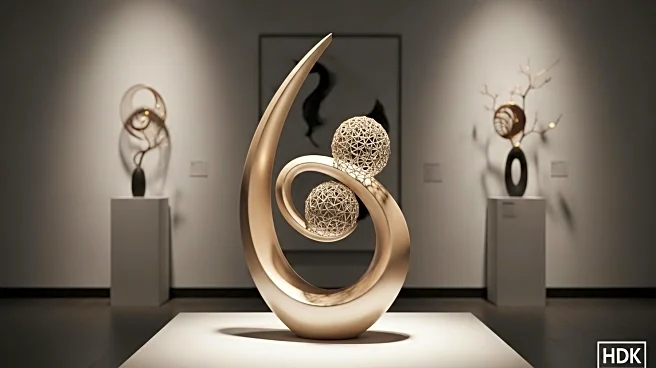What is the story about?
What's Happening?
The Flemish government has announced its decision to dissolve the Museum of Contemporary Art Antwerp (M KHA) and transfer its collection to the contemporary art museum in Ghent. This decision has caused a stir in the European art community, leading to protests and petitions in support of the museum. M KHA, known for its extensive collection of 8,000 objects and diverse exhibitions, will be repurposed as an arts center hosting exhibitions, studios, and residencies. The move follows a recent ruling that canceled M KHA's planned new building project, which had been in development for nearly a decade. Despite assurances from Culture Minister Caroline Gennez about the museum's continued role in Belgium's art landscape, the funding for M KHA has been cut, and its collection will be merged with Ghent's S.M.A.K. to form the Flemish Museum of Contemporary and Current Art by 2028.
Why It's Important?
The dissolution of M KHA represents a significant shift in Belgium's cultural landscape, affecting the country's art community and its international reputation. The museum has been a cornerstone of contemporary art in Europe, with its director Bart De Baere playing a pivotal role in expanding the institution's global reach. The decision to merge M KHA's collection with Ghent's S.M.A.K. could impact the accessibility and visibility of contemporary art in Belgium, potentially diminishing Antwerp's cultural influence. The move is seen by some as politically motivated, raising concerns about the future of art institutions in the region and the preservation of their legacies.
What's Next?
The merger of M KHA's collection with Ghent's S.M.A.K. is expected to be completed by 2028, creating the Flemish Museum of Contemporary and Current Art. This transition may lead to further protests and discussions within the art community as stakeholders seek to preserve the museum's legacy and influence. The decision could prompt other cultural institutions to reassess their strategies and funding models in response to shifting political priorities. The art community will likely continue to advocate for the preservation of M KHA's unique identity and contributions to contemporary art.
Beyond the Headlines
The dissolution of M KHA raises broader questions about the role of government in cultural preservation and the impact of political decisions on artistic expression. The move could set a precedent for how cultural institutions are managed and funded, influencing future policies in Belgium and beyond. The integration of M KHA's collection with S.M.A.K. may also lead to new collaborations and opportunities for artists, but it risks losing the distinct identity and historical significance of M KHA as a standalone institution.
















